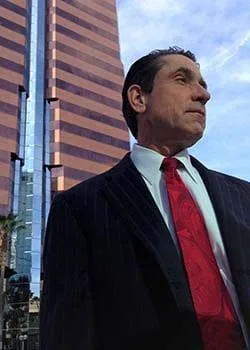If you've ever heard a mysterious click during a phone conversation, you've probably wondered if your phone was being tapped. In reality, government wiretaps though once fairly rare, are being used ever more frequently. Wiretaps are used to investigate primarily drug cases and to a much lesser extent, homicide and gang crimes. If your conversations have been intercepted and being used to prosecute you, it is critical to contact an attorney who understands the complex area of wiretap law.
In November of 2015, USA Today reported that in Riverside County, the use of wiretaps quadrupled over the prior four years. A Riverside County judge approved 624 wiretaps in only one year. Those wiretaps were relied on to make arrests and seize drugs and money in jurisdictions as far away as New York and Virginia. Some two million conversations were intercepted in one year as a result of Riverside wiretaps. Los Angeles County has consistently ranked second in number of wiretaps issued.
Long Beach criminal lawyer Matthew Kaestner has substantial experience handling wiretap cases in California. If you are being prosecuted for a crime wherein the government is using wiretap evidence, contact Long Beach criminal attorney Kaestner directly at (562) 437-0200. Attorney Kaestner has handled multiple wiretap matters, and lectured on wiretaps at a seminar sponsored by the Los Angeles County Bar Association.
According to the most recent United States Government report released on December 31, 2018, there were 2,937 federal and state wiretaps reported in 2018, a 23% decrease from 2017. There were 1,457 wiretaps authorized by federal judges and 1,480 authorized by state judges. [Read more.]
In California, the 2018 report from the California Attorney General showed that there were 387 wiretaps issued by California State Judges. Records do not show that a California judge ever refused to sign a wiretap application submitted by law enforcement. Those 387 wiretaps resulted in 49 arrests at a total cost of $6,294,371. To compare, in 2014 California State Court judges approved 971 wiretap orders. In 2013 674 wiretap orders were signed. [Read more.]
California accounted for 28% of all wiretap orders issued by state courts in the United States in 2018. In 2018 46% of state and federal wiretaps were directed primarily to narcotics offenses. In Los Angeles, in 2018, several hundred thousand conversations were intercepted involving thousands of persons having their private conversations overheard.
What follows is a brief overview of the law concering wiretaps, in California and by the Federal Government prepared by Long Beach criminal lawyer, Matthew Kaestner. Mr. Kaestner is a certified specialist in crminal law, certified by the State Bar of California, Board of Legal Specialization.
Whenever a State or Federal law enforcement agency has probable cause to believe that a person or persons are commiting or committed serious felony offenses, and normal law enforcement techniques are not likely to develop evidence of guilt, they can ask a prosecutor to apply to a judge for a wiretap. To obtain a state wiretap, only the District Attorney of a county or the top three members of the criminal division of the Attorney General's office can apply for a wiretap. Federal wiretaps may only be sought by the "highest ranking prosecutor" listed in the applicable wiretap statute.
Likewise, state wiretaps may only be signed by the presiding judge of a county or one other judge in that county. Federal wiretaps may only be signed by judges specifically authorized by statute. State judges may only sign a wiretap to intercept communications within their territorial jurisdictions.
Wiretaps in California regarding narcotics investigations can only be used in major narcotics cases. In fact a court must have probable cause to believe that "a substance containing heroin, cocaine, PCP, methamphetamine, or their precursors or analogs where the substance exceeds 10 gallons by liquid volume or three pounds of solid substance by weight" is involved. However, wiretaps may also be issued to gather evidence related to murder, solicitation to commit murder, destructive devices, weapons of mass destruction, kidnapping, and felony gang offenses.
State wiretaps cannot be ordered to gather evidence of other offenses not listed above. Federal wiretaps may be sought for a broader list of felony offenses listed in Title18 United States Code section 2516(2).
If you were named in a federal wiretap order, or application for an order, you are entitled to notice of this fact within 90 days. Failure to provide this notice entitles the person who's conversations were intercepted to suppression of the conversations as evidence and to civil money damages. Persons who's conversations were intercepted must be identified to the federal judge who issued the order who then decides whether those persons will be notified of the interception.
State wiretap rules are even more stringent in this regard. The California wiretap law is Penal Code sections 629.50 through 629.98. Penal Code section 629.68 requires that all persons who's calls were intercepted and can be identified, must be notified of the interception within 90 days of the termination of the order regardless of whether criminal charges are ever filed.
Thus, persons who's conversations were intercepted but were not the targets of the wiretap are likely going to find out, one way or another.
Persons arrested based on wiretap evidence can challenge, as an illegal search and seizure, the validity of the wiretap order. Oftentimes, one wiretap order will lead to another "hand off" wiretap order. This occurs where a targeted individual speaks to another party and the police thereafter seek a wiretap on the other party. The second party may challenge not only the legal validity of the wiretap made regarding his own phone, but also as to first wiretap that supported the probable cause for the second.
Wiretap law can be complicated and unravelling the actions of the police that lead to the wiretap can be an immense undertaking. Long Beach criminal lawyer, Matthew Kaestner, welcomes your inquiries about wiretap cases, or any other criminal case. He is a criminal law specialist with over 30 years of experience handling criminal cases. You can contact criminal attorney Kaestner directly at 562-437-0200.




